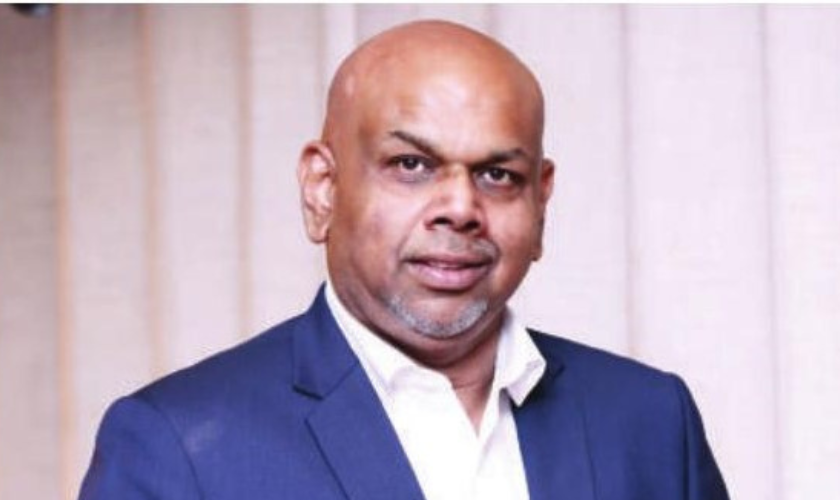Aloft Kathmandu Thamel, a five-star Marriott property in Kathmandu, is completing six years of operation on July 17. Over this period, the hotel has celebrated important milestones while navigating significant challenges, steadily establishing itself as a leading name in Kathmandu’s hospitality scene. In an interview with Tamish Giri of New Business Age, Vikram Singh , the hotel’s General Manager, reflected on Alfot’s journey so far and discussed the road ahead. Excerpts:
Q: Aloft is celebrating its sixth anniversary on July 17. How has the journey been so far?
A: I would sum up the last six years in four simple words: starting, surviving, reviving and thriving. The journey of Aloft Kathmandu Thamel over these years has been truly remarkable. We have experienced tremendous growth and have become a favorite destination for travelers seeking a modern and vibrant hotel experience. The key to our success lies in our commitment to providing a unique and innovative guest experience. As part of Marriott International’s portfolio, Aloft brings a fresh and energetic approach to hospitality, combining cutting-edge design, technology and personalized service to create a memorable stay for our guests in Kathmandu.

We also attribute this success to our board—including the chairperson, managing director, management team, all associates of the hotel—and to the Marriott team in India, led by Area Vice President for South Asia, Ms Ranju Alex.
Q: What shifts, diversification or expansion of services has Aloft experienced over the past six years?
A: We continue to evolve to meet the ever-changing demands of our guests by making strategic year-on-year enhancements across our people, processes and product offerings to elevate the overall experience. The addition of our state-of-the-art gym, Nylgiri Bar Lounge, spa, exclusive Club Lounge and modern Urban Rooms has significantly enriched our hospitality offerings, providing greater comfort, wellness and personalized service. Additionally, we are proud to be ISO 14001:2015 certified, reinforcing our commitment to environmental sustainability and responsible business practices as part of a broader global initiative. Furthermore, we actively engage in meaningful CSR initiatives supporting animals, orphanages, old age homes and other community welfare projects, aiming to make a positive local impact.
Looking ahead, we remain committed to exploring further opportunities for expansion while continuously investing in the training and development of our associates. Our focus is on delivering thoughtfully curated experiences that ensure every guest enjoys a truly enriching and memorable stay, aligned with Marriott International standards.
Q: Who are your major customers and how has this evolved over time?
A: Our guest profile has consistently been a diverse mix of nationalities. Primarily, as an American brand, we see a strong presence of travelers from the United States, followed by guests from Europe, the United Kingdom and India. While other nationalities fluctuate depending on travel trends and connectivity, this core group has remained relatively consistent over the years. In terms of segments, we cater to a healthy mix of corporate, leisure, MICE and other categories of guests, reflecting the hotel’s versatility in meeting a wide range of travel needs and preferences.
Q: What are the key challenges that Aloft Kathmandu Thamel is facing in reaching its full potential?
A: Some of the key challenges arise from broader issues such as national policies, infrastructure, airfares, destination marketing and the current types of tourism flowing into Nepal. For both the country and the hospitality sector to reach their full potential, Nepal needs to consistently attract between 1.8 to 2.2 million tourists annually. Until we achieve that scale, we are still operating below our true capacity. Once those numbers are reached, not just hotels, but the entire tourism ecosystem will experience significant growth and sustainability.
At Aloft Kathmandu Thamel, we are growing every day by continuously enhancing our people, processes and product offerings. Naturally, challenges are inherent in the hospitality industry which operates round the clock. What one guest may appreciate, another may not. That is the nature of our business: highly personalized, ever-evolving and deeply focused on adapting to individual preferences while maintaining consistent service standards.
Q: The number of franchise hotels is growing rapidly in Nepal. How does Aloft differentiate itself from others? What specialties does the hotel offer compared to competitors?
A: Looking at the global hospitality landscape, markets are generally categorized as immature, semi-mature and mature. In mature markets like the US, UK and parts of Europe, over 70% of hotels operate under a franchise or third-party management model. This trend is increasingly being followed by semi-mature and emerging markets as they develop.
Aloft Kathmandu Thamel aligns with this global shift while staying true to its core identity as a vibrant lifestyle business hotel. The Aloft brand is defined by its dynamic fusion of bold design, live music and cutting-edge technology, creating a space that feels energetic, social and forward-thinking. As we like to say, we are truly "Different by Design”. While hotels in our category may share a similar foundation, what sets us apart is our personalized approach. We treat every guest by name, not by room number. Our team consistently delivers that extra touch, and we continuously upgrade our people, products and processes to ensure a fresh and modern experience for our guests. Furthermore, we are guided by Marriott Global International Standards.
Q: What marketing strategy are you deploying to tackle the challenges?
A: The marketing strategy at Aloft Kathmandu Thamel has always been rooted in authenticity—staying true to the essence of being a lifestyle hotel that is “Different by Design”. Our focus is on offering a unique, value-for-money experience without overpromising. We market what we can genuinely deliver, ensuring guest expectations are met with consistency and honesty.
Our approach spans both traditional and modern channels, from print media to digital platforms, creating a balanced and effective presence across all touchpoints to deliver outstanding service. Like each of the over 30 brand options under the Marriott umbrella, we align our marketing efforts with Marriott’s global standards, ensuring brand consistency, quality and adherence to best practices that strengthen our position in the competitive hospitality market.
Q: Over the years, the hotel industry has experienced major ups and downs, particularly during COVID-19 and, more recently, the freezing of US projects. What impacts have you seen at Aloft and in the hotel industry as a whole?
A: Nepal’s tourism sector demonstrated a significant rebound in 2024, with international arrivals nearing pre-pandemic levels. This recovery highlights the enduring appeal of the Himalayan nation’s natural beauty and cultural heritage. However, the sector continues to face persistent challenges related to infrastructure, economic factors, safety concerns and environmental sustainability. While Nepal has shown resilience in overcoming past difficulties, including the devastating 2015 earthquakes and the recent COVID-19 pandemic, sustained growth requires strategic interventions. Key areas for improvement include enhancing infrastructure, diversifying tourism products, strengthening marketing efforts and elevating the quality of hospitality services.
One major factor affecting tourism is the near absence of American government business, particularly the suspension of USAID projects, which has led to reduced spending on MICE from organizations like WHO and the UN. The Nepal Tourism Board (NTB), private sector and organizations such as PATA, HAN, NATTA and SKAL are actively promoting the country. However, current geopolitical headwinds may impact Nepal’s tourism.

That said, the inclusion of the hospitality sector as a preferred industry in the government’s budget for 2025/26 fiscal year is a positive development. Overall, the mood for hospitality investments is optimistic, with a strong wave of new hotel openings since 2023 reflecting confidence in the sector’s future.
Q: You have been with the hotel since its inception. How has your journey with Aloft been? What is your most cherished memory with the hotel?
A: Being with Aloft Kathmandu Thamel from day one has been an incredible journey of growth, passion and purpose. Watching the hotel evolve into a vibrant hub in the heart of the city has been truly rewarding.
Among countless memories, the period during the COVID-19 pandemic stands out the most. Despite the global uncertainty, the hotel never closed its doors—not for a single day—and stood firmly by every team member without any layoffs. That unwavering commitment laid the foundation for a strong comeback, as we not only regained momentum but also surpassed expectations. Our guests continued to believe in us, and our team emerged stronger, more united and more determined than ever.
Q: How would you sum up your six-year professional career in Nepal? Also, how do you see Nepal as a hotel destination?
It has been an incredible and transformative journey for me, both personally and professionally. When we started, Kathmandu had only a few branded hotels, but since then, the city has seen the emergence of over 10 to 12 new international and branded properties. It has been inspiring to witness the growth of professional standards within Nepal’s hospitality sector.
Over the past six years, I have grown immensely as a professional. The journey has been filled with learning, challenges and rewarding experiences. I continue to learn every day and am grateful to be part of an industry, and a city that is constantly evolving.
(This interview was originally publihsed in July 2025 issue of New Business Age Magazine.)












